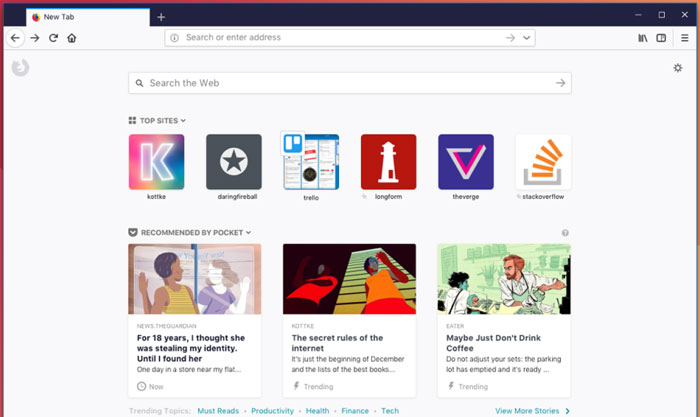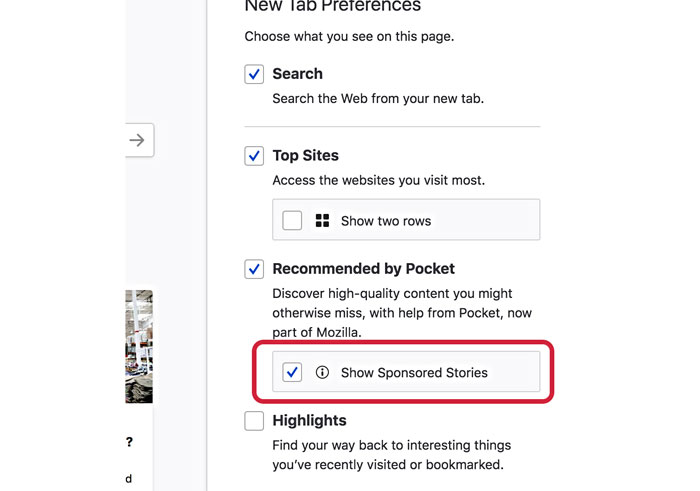Web businesses often find it difficult to monetise software or content and for Mozilla, whose motto is "internet for people, not profit" the challenge is particularly difficult. For a start users have a good choice of highly usable modern browsers to choose from, and secondly Mozilla trumpets its user-centric ethics, as noted above. However, it is about to embark on a new monetising project with "a privacy-conscious approach to sponsored content."

Mozilla bought up the read-it-later app Pocket last year, Mashable reminds us. And it is via this newly integrated part of Firefox that Mozilla wishes to show sponsored content. If you use Firefox you will probably have seen Pocket appear within Firefox over recent updates - in a default toolbar button, using up space in various context menus, and on the default Firefox start page. For me Pocket has been a whack-a-mole feature that I have tried to bury every time Mozilla thrust it into the Firefox UI via updates on PC and mobile.
Sponsored Pocket story suggestions start for mainstream in v60
Pocket offers more than just read-it-later functionality, it offers reading suggestions. Mozilla wants to use this avenue for monetisation. It reckons "an occasional sponsored story in Pocket's recommendation section on Firefox New Tab" will be an improvement on ads and "low quality, clickbait content". The feature will go live later this month for Firefox users in the US with the Firefox 60 release.
But you can turn it off (see bullet point 3 below)
On its part Mozilla will do its best to respect user privacy and put control in user hands. To ensure this it promises to deliver four things:
- Personalization, without sacrificing privacy. All personalization happens on the client-side, without needing to vacuum up all of your personal data or sharing it with others. (Read more about how we protect your privacy here.)
- Quality. Rewards valuable content, worthy of your time. Not just clicks.
- Control. If you see a story you’re not a fan of, you can hide it. Or you can disable sponsored content altogether. (Read how to do that here.)
- Transparency. As an open organization, all code in Firefox is open source and we’re open about all of our products and policies. (You can see exactly what data we collect, or more importantly, don’t collect).

On the first point Mozilla says it is excited to be able to show personalised user-centred content without sharing of your personal data. That should allow users to be comfortable with personalised content while helping Mozilla pay for its running and development costs.






